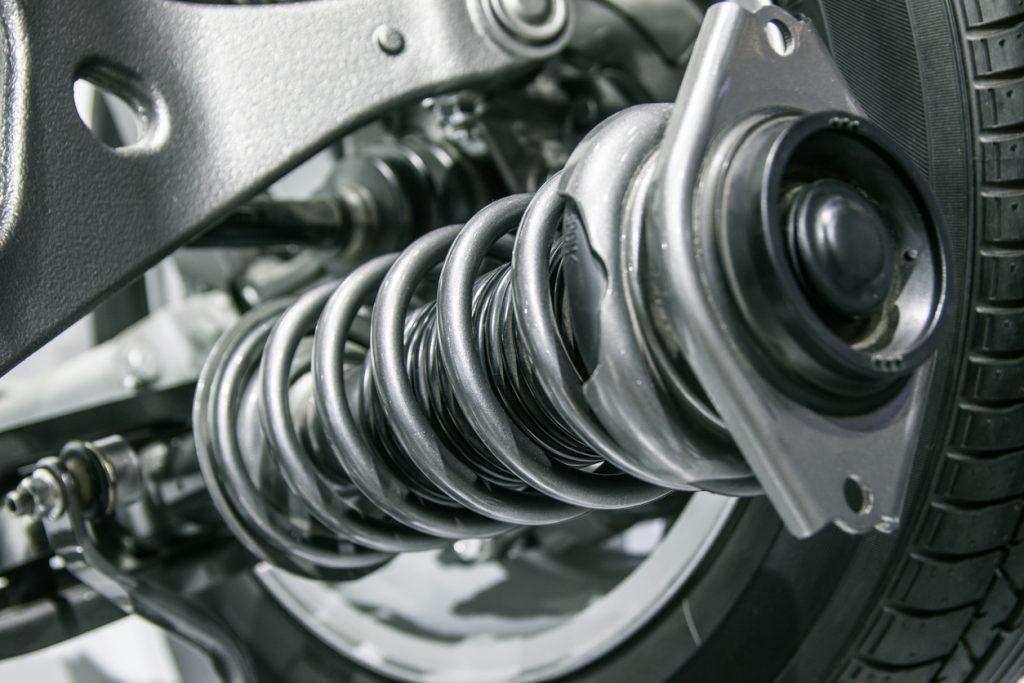For Nigerian drivers, smooth and safe rides are more than a luxury—they’re essential. Whether navigating Lagos’s busy streets or Nigeria’s rough rural roads, your car’s shock absorbers play a critical role in comfort, handling, and safety. Travo.ng brings you a comprehensive guide on car shock absorbers, their importance, and how to maintain them for optimal performance on Nigerian roads.
What is a Car Shock Absorber?
A car shock absorber is a device that dampens the impact of bumps, potholes, and uneven road surfaces. It works with your vehicle’s suspension system to:
- Reduce jolts and vibrations.
- Improve tire contact with the road.
- Enhance overall vehicle control and safety.
In Nigeria, where road conditions vary dramatically, shock absorbers are vital for preventing wear on tires, protecting suspension components, and ensuring a smooth ride.
Types of Shock Absorbers
Nigerian drivers should know the main types of car shock absorbers:
- Hydraulic Shock Absorbers
- Uses fluid to absorb energy.
- Common in older vehicles and everyday cars.
- Gas-Charged Shock Absorbers
- Pressurized gas improves responsiveness.
- Reduces foaming and enhances stability, especially on rough roads.
- Adjustable Shock Absorbers
- Allows customization of stiffness for comfort or performance.
- Ideal for drivers who switch between city and off-road driving.
- Coilover Shock Absorbers
- Combines a coil spring and shock absorber.
- Common in sports and high-performance cars for better handling.
Signs Your Car Needs Shock Absorber Maintenance
Keep an eye on these indicators to avoid bigger issues:
- Excessive bouncing after going over bumps.
- Uneven tire wear.
- Leaking fluid near the suspension.
- Unstable handling or swaying during turns.
- Noisy suspension sounds when driving on rough roads.
Ignoring these signs on Nigerian roads can lead to costly repairs and compromise safety.
Tips for Maintaining Car Shock Absorbers in Nigeria
- Regular Inspection
- Check shock absorbers every 10,000–15,000 km, or sooner if driving on rough roads.
- Clean Suspension Components
- Remove mud and debris, especially during rainy seasons, to prevent corrosion.
- Monitor Tire Health
- Proper tire pressure reduces stress on shock absorbers.
- Replace in Pairs
- Always replace shock absorbers in front or rear pairs to maintain balance and handling.
- Avoid Overloading
- Excess weight strains shock absorbers and suspension systems.
Why Travo.ng is the Go-To Guide for Nigerian Drivers
Travo.ng is not just a trusted logistics and travel solutions provider; we also offer valuable insights for Nigerian drivers. From vehicle maintenance tips to road safety guidance, we ensure every journey is safer and more comfortable. Our expert advice on car shock absorbers helps drivers protect their vehicles, improve handling, and avoid unnecessary repair costs.
Conclusion
Shock absorbers are critical for every car on Nigerian roads. They protect your suspension system, enhance driving comfort, and improve safety. By understanding how shock absorbers work, recognizing signs of wear, and following proper maintenance tips, Nigerian drivers can enjoy smoother rides and longer vehicle life. Trust Travo.ng to guide you with expert, practical advice for all your automotive needs.







